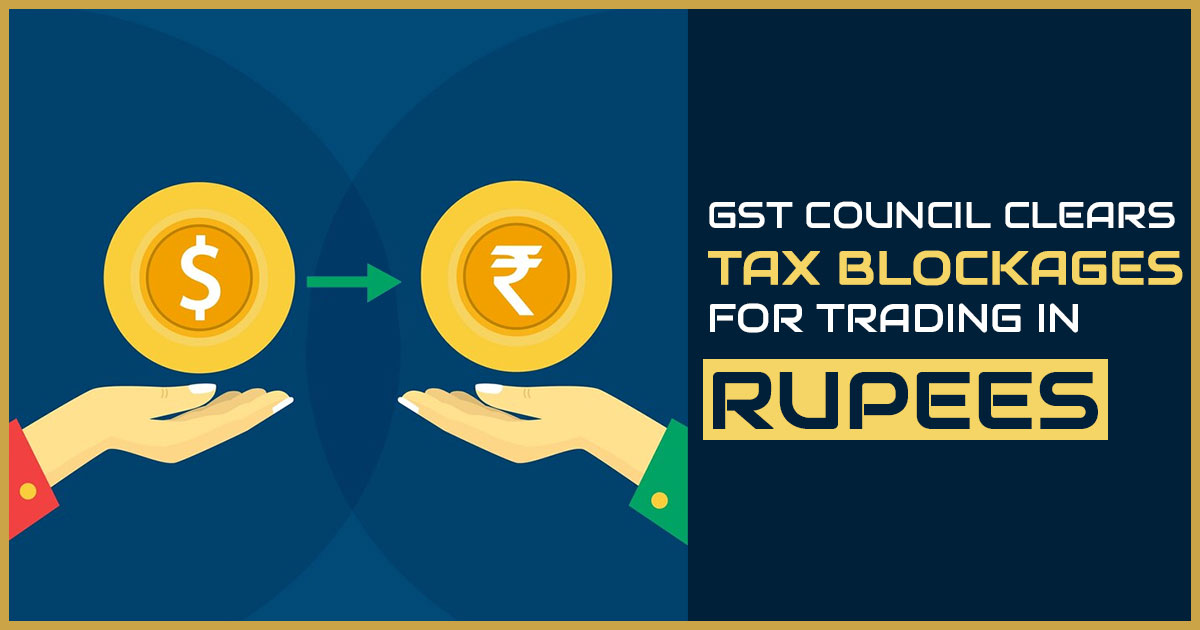
In the midst of India’s prolonged decline in exports, the Goods and Services Tax (GST) Council has implemented several measures aimed at stimulating foreign trade. One of these measures involves granting tax credits to service exporters who receive payments in Indian rupees. This move is particularly significant for trade with nations like Iran and Russia, which are subject to global sanctions.
The Indian government has been actively promoting rupee-based trading arrangements with multiple countries as a means to reduce reliance on the U.S. dollar. In pursuit of this goal, banks from more than 20 nations have established special rupee (INR) Vostro accounts with Indian banks to facilitate payments for their imports from India.
However, many service exporters had been unable to claim input tax credits under the GST system due to the requirement that foreign currency receipts be recognized as essential for obtaining ‘export’ status.
After a meeting of the GST Council, the Finance Ministry announced its recommendation to circulate a directive clarifying the eligibility of export remittances received in the Special INR Vostro account, as authorized by the Reserve Bank of India. This clarification aims to determine whether the supply of services qualifies as an export of services under the Integrated GST [IGST] Act, 2017.
Sanjay Chhabria, the Director of Indirect Tax at Nexdigm, elucidated that disputes had arisen concerning refund applications, with GST officers attempting to reject the benefit claim by arguing that receiving consideration in INR did not meet the conditions required to qualify as ‘exports of services.’
This clarification will offer relief to exporters whose GST refunds had been delayed due to disputes related to this specific issue. Additionally, it will shield them from GST demands.
The proposed clarification will be especially advantageous to companies seeking to receive export proceeds from countries like Iran or Russia, which face U.S. sanctions affecting regular remittance channels.
Relief for SEZ Suppliers
In a separate decision, the GST Council has taken steps to address the repercussions of a notification issued on July 31. This notification created difficulties for companies that provide goods or services to special economic zones (SEZs) when it came to claiming tax refunds.
Mr Chhabria explained that this action is aimed at rectifying an anomaly that arose due to the accidental exclusion of such supply categories from the option of a refund with payment of tax. This omission occurred following amendments to the IGST Act.
By explicitly including these supplies in the list of eligible for rebates, the Council has put to rest any ambiguity in this matter. This step also helps in averting potential concerns about working capital for domestic industries engaged in SEZ supplies.
Important: Supplies to SEZ Under GST: Rules and Provisions
The Council has further advised the issuance of a circular to provide clarity on the treatment of the place of supply for services involving the transportation of goods, including those carried out by mail or courier, in situations where either the service provider’s location or the recipient’s location is outside India. This communication is anticipated to address concerns regarding the supply of advertising and co-location services as well.
The industry has eagerly anticipated clarifications regarding the export of goods through mail or courier services for some time. However, a thorough examination of the specific details will be necessary to evaluate their implications. It remains unclear whether the clarifications concerning advertising and co-location services pertain to export scenarios or domestic places of supply.